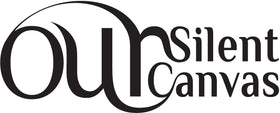Christopher Bono Bio
Christopher Bono (OSC Director/Founder) is a polymath composer, instrumentalist and producer who has created acclaimed works and projects across genres; including orchestral, chamber and choral modern classical pieces, Post-Rock, jazz, experimental and electronic albums. Bono began OSC in 2010 as a vehicle for his own compositions and for collaborations with unique performers and friends.
Christopher Bono started down the path of music much later than most of his contemporaries. He spent his childhood and teenage years devoted to baseball; in 1999 he was drafted by the Seattle Mariners but an injury kept him from playing. Filling the void left by the end of his athletic endeavors, Bono began playing the guitar when he was 21, and for several years he toured, recorded, and performed in an alternative roots-rock style. In his mid-20s, he made the choice to learn classical composition techniques in order to more fully realize his music. For seven years, in nearly hermetic isolation, he taught himself to read music, and studied composition independently with Juilliard professor Kendall Briggs and at La Scola Cantorum in Paris.
On Bono’s introspective three movement work, Invocations, Frank Oteri in NewMusicBox, wrote, “While much of 21st-century contemporary composition is not beholden to any rules…Bono’s music sounds as though everything he writes is something he is discovering for the very first time, even if there are clear reference points throughout to the sound worlds of other composers from both our own time and other eras.”
Two of his choral works were recorded by the New York Virtuoso Singers with Harold Rosenbaum conducting. Film artists Tobias Stretch (Radiohead, Deftones) and Ingibjörg Birgisdóttir (Sigur Rós) made accompanying art films for the pieces.
Christopher released the epic orchestral album BARDO in 2014. BARDO charted at #12 on iTunes classical internationally and received rave reviews. The work incorporates a vast source of multicultural influences including The Tibetan Book Of The Dead, various archetypal symbolism and characters from the ancient Tarot system, sound healing, and sacred geometry. This surreal musical drama narrates the path of “The Fool,” a character derived from the Tarot system, as he experiences a spiritual journey through a cycle of loss, despair, inspiration, destruction, death, the afterlife, and rebirth.
The recording of BARDO features members of the Czech Philharmonic Orchestra and the Prague Philharmonic conducted by phenomenal young conductor Teddy Abrams. The sessions were recorded at the legendary Dvorák Hall in Prague, and were produced by Christopher Bono with Grammy Award-winners Adam Abeshouse and Silas Brown.
In 2017, After 3 years of isolated work, Christopher wrote, produced and released the first Ghost Against Ghost full length album entitled, still love. Some of the reviews for the album included:
”Cathartic soul-bearing space prog masterwork." -- Prog Magazine
"Still Love is a mighty work of art that juxtaposes pop-sensitivity with an intense listening experience." - Arctic Drones
“Evokes a wide array of inspirations to create a vast and intense field of sounds. Bono constructs a darkly spiritual aura in this post-rock inspired composition." - Stereogum
"Ghost Against Ghost's New Song "Resume" Is A Slow-Moving, Cinematic Destroyer" -Metal Injection
Ghost Against Ghost is Bono’s ambient post-rock moniker, and he plans to continue to release a series of extended pieces through the project over the next few years.
2018 will feature the release of a three album set from the improvisational group NOUS, founded by Christopher. This year also marks a series of studio and performance collaborations with legendary electronic producer Gareth Jones, a new ensemble with Thor Harris (Swans) and Christopher Pravdica (Swans), and Anni Rossi, a shamanic scandinavian project being recorded this summer in the north of Norway with Norwegian folk singer Cecilie Hafstad, an ongoing collaboration with Jazz icon Karl Berger, and a fall project with electronic producer Photay.
